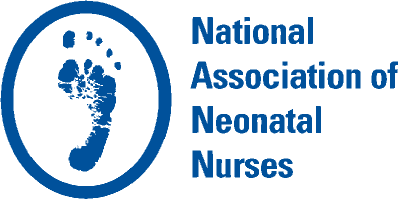Feature
Resiliency & Reflection: Will You Stay or Will You Go?
By Valarie A. Artigas, DNP APRN NNP-BC
We have said goodbye to 2021 and are left with the remnants and new science discoveries surrounding this global pandemic. As nurses, we are exhausted, – both mentally and physically. Never in our careers did we expect to see and experience so much tragedy, and death. The loss of our patients, family members, and neighbors— our connection to this pandemic remains infinite.
Another loss is occurring within our nursing profession. We lose nursing colleagues every day to attrition, early retirement, or their need to maintain their personal self-worth/love when the “joy of nursing” has been lost or forgotten (McGrath & Brandon, 2019; Walden et al., 2020).
Amid this pandemic, we joined nurses around the globe celebrating the 200th anniversary of the birth of Florence Nightingale. Our “Lady with the Lamp” is the founder of modern nursing. A pioneer, a researcher, and statistician, Nightingale’s work established nursing as a respected profession.
I often ask myself, “What would Flo do or say? Do I have her strength and her resilience to continue my work as a neonatal APRN and a nursing professor?”
My answer is a resounding yes!
I am a nurse and someone who always dreamed of becoming a neonatal nurse. The paths for our journeys in nursing are not always smoothly paved, but, as nurses, the care we provide to our patients and their families is a gift, a calling. What we do as neonatal nurses goes beyond the skills and sciences of neonatology. Neonatal nurses are resilient, just like those tiny babies we care for that depend on us to be their voices. We share in the most precious moments of a parent’s life story—the birth of their baby—and we are given the gift of being able to care for these little ones until their parents can. Parents trust us; they place all their hopes and dreams in our healing hands.
I could go on for hours in regard to all the beautiful things we do as neonatal nurses, but I wanted this article to provide you with the opportunity to self-reflect on why you became a neonatal nurse and what makes you stay, – even on the saddest and darkest days we sometimes experience these days.
In the late 1970’s and early 1980s, there weren’t many books on prematurity, let alone the role of the neonatal nurse. The lack of resources was the result of the relative youth of NICUs. The first NICU was “born” in 1960, designed by Dr. Louis Gluck, a pediatrician at Yale New Haven Hospital. Like Nightingale, Dr. Gluck was a pioneer, helping to develop the subspecialty of neonatology.
As a career neonatal nurse, neonatal APRN, and now nursing professor, I share my joy and lived experiences with my students. I speak about having those special patients that you carry in your heart for your professional lifetime. Those memories make you smile while reinforcing the resiliency you have as a nurse and the art of caring you possess so deeply for our babies and their families. Because for a while in time they are “our babies.”
We experience and celebrate their resiliency to overcome the odds. We teach their families to be parents and to look past the technology to “see” their newborn son or daughter. We see their strengths as they develop their little personalities. We speak to them in low and nurturing voices during cares and call them by their names. We encourage them to get stronger and heal for their loving parents. Sometimes we even scold them not to have that bradycardic event while their parents are holding them for the first time!
Reflecting on Baby Mattie bolsters my resiliency. He was born emergently after a maternal transfer from a community hospital to our children’s hospital on a very cold night in March 36 years ago.
I remember him as vividly as if it were yesterday. On a routine fetal ultrasound, a large mass (thyroid teratoma) was noted lateral to the right side of his neck. I was Mattie’s neonatal operative and post-op nurse that night. He was so critically ill that he was assigned as a 1:1 for cares for days. His neonatal course was complicated, requiring 7 months of care in our NICU.
I celebrate his birthday and his story of strength every year. Today baby Mattie is grown, with a successful career and family. He is truly my reflective gift of resiliency.
As a neonatal APRN, I am blessed to be able to share my passion and devotion to our nursing profession and the little lives that touch our souls each and every day. Like Florence Nightingale, nurses remain pioneers as we navigate the coronavirus pandemic. We draw our strength from one another, we care for our babies, and we continue to be their voices through family-centered advocacy (Shaw et al., 2021). We speak to our parents and families every day about taking their NICU journey just one day at a time: to focus on one happy moment or milestone for today, to take the little victories and keep them in your heart to give you strength to come back tomorrow.
So, I ask you: Will you take the advice that you have given to parents countless times while sharing your love of nursing and honor your story of that baby and family that still live in your heart today? Will you stay? Or will you go?
I hope you will stay and rediscover the joy of being a neonatal nurse.
References
McGrath, J. M., & Brandon, D. (2019). Why does joy at work matter? Advances in Neonatal Care, 19(4), 245-246. https://doi.org/10.1097/ANC.0000000000000656
Shaw, C., Gallagher, K., Petty, J., Mancini, A., & Boyle, B. (2021). Neonatal nursing during the COVID-19 global pandemic: A thematic analysis of personal reflections. Journal of Neonatal Nursing, 27(3), 165-171. https://doi.org/10.1016/j.jnn.2021.03.011
Walden, M., Janssen, D. W., & Lovenstein, A. (2020). What keeps neonatal nurses up at night and what gets them up in the morning? Advances in Neonatal Care, 20(6), E102–E110. https://doi.org/10.1097/ANC.0000000000000723
Our Sponsor


